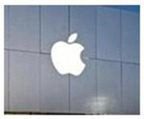 Today a judge used the late Apple co-founder’s own words in deciding not to toss out lawsuits claiming that Apple and a number of book publishers conspired to raise the prices of e-books and squash competition.
Today a judge used the late Apple co-founder’s own words in deciding not to toss out lawsuits claiming that Apple and a number of book publishers conspired to raise the prices of e-books and squash competition.
Steve Jobs, who co-founded Apple in 1976, died October 5, 2011 after a long battle with cancer. The company he co-founded has been extremely successful, becoming the largest publically owned company in the world, as measured by market capitalization.
But Apple and some of the e-book publishers being accused are currently being sued by the US Department of Justice and 15 US states. The suit claims that Apple and e-book publishing houses Holtzbrinck Publishers (dba: Macmillan) and The Penguin Publishing Co. Ltd (dba: Penguin Group), conspired to raise the prices of e-books and create a situation in which Amazon was forced to match the higher prices. Three additional e-book publishers, Harper Collins, Hachette, and Simon & Schuster, struck out of court settlements and are not included in this lawsuit.
Apple and the publishers argued that the suit should not go forward, as they were simply improving efficiency. In ruling against the request to have the case tossed out, Judge Denise Cote reminded the defense of Jobs’ own words when he noted that the prices would be the same at Amazon.com, and that “the customer pays a little more, but that’s what you want anyway.”
In the lawsuit, Apple is being accused of, in effect, attempting to restrict pricing competition.
Prior to a 2009 agreement between Apple and the publishers, Amazon purchased e-books at a wholesale price and set their own retail price. They might set the price at full retail when demand was high, take a loss on it to move inventory, or maybe even sell and e-book as a loss leader.
The agreement that Apple set up put the publishers in charge of setting the retail price of e-books, with Apple receiving a 30% commission. As part of the deal, the publishers agreed that if another retailer (think ‘Amazon’) was selling a particular e-book at a lower price, Apple could sell it at that lower price as well.
Publishers then required Amazon to use the same model to sell their books, so that Amazon could not undercut Apple’s prices, which would cause the publisher to have to lower theirs, making their part of the cut less. This assured, in effect, that prices would be the same (or some might say ‘fixed’) across all sales platforms, whether Apple, Amazon, or anyplace else.
The restricted price competition means shoppers are paying higher prices for e-books. When the suit was first filed, US Attorney General Eric Holder said of the pricing situation ”We believe that consumers paid millions of dollars more for some of the most popular titles.”.



